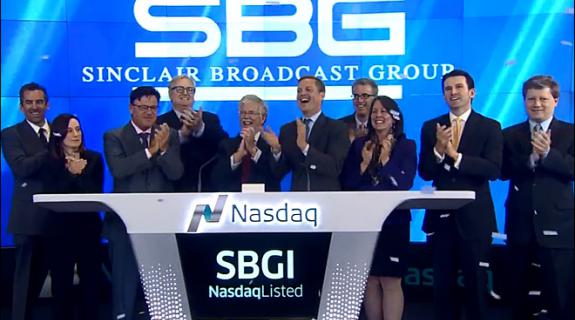FCC Chairman Tom Wheeler came away with a win after inserting the federal agency into the ongoing retransmission-consent dispute between Sinclair Broadcast Group and Dish Network.
Late Tuesday, Sinclair pulled its 129 stations from the satellite TV service when the two sides could not come to terms on a new carriage agreement. By Wednesday evening, however, Sinclair was back on Dish’s service and a final agreement appeared to be in the works.
“On behalf of more than 5 million consumers nationwide, I am pleased Dish and Sinclair have agreed to end one of the largest blackouts in history and extend their negotiations,” said FCC Chair Wheeler late Wednesday. “The FCC will remain vigilant while the negotiations continue.”
The stations went off the air Tuesday night, nine days after the two sides had agreed to a contract extension.
According to Dish late that night, “We have agreed to rates and all terms to carry Sinclair’s local stations. … Sinclair is blacking out 129 local stations in an effort to negotiate a carriage agreement for an unrelated cable channel that it hopes to acquire, but does not own today.”
In its own statement, Sinclair responded: “Dish, which is reported to have engaged in more recent station blackouts than any other MVPD, is simply trying to spin the facts in an apparent effort to make a political statement. While Sinclair, unlike Dish, is not interested in negotiating this transaction in the press, Sinclair remains willing to negotiate a fair deal with Dish,” said Sinclair EVP and General Counsel Barry Faber.
Neither Sinclair nor Dish are known for their relaxed negotiating tactics.
BTIG Analyst Rich Greenfield noted that the dispute might be “the straw that breaks the camel’s back,” because Congress already is looking at legislation that would level the retransmission-consent playing field. Thus far, Congress has appeared to favor broadcasters’ arguments, but Sinclair’s behavior throughout this process could inspire lawmakers to take a closer look at the negotiation process.
“Sinclair’s actions vis-à-vis Dish look to us like lighting a match in a dry brush field,” Greenfield wrote. “The government is looking for reasons to get more involved to help consumers. Sinclair may have finally given them a blatant enough excuse.”
Read more: Deadline, Broadcasting & Cable
Brief Take: Retransmission consent has become a cash grab for broadcasters, but in the end, it’s consumers who lose as pay-TV providers raise prices to cover the increasing costs of carrying TV stations.
Cube image courtesy of Sinclair-owned KOMONews.com.
Tags:













































__twocolumncontent.jpg)











